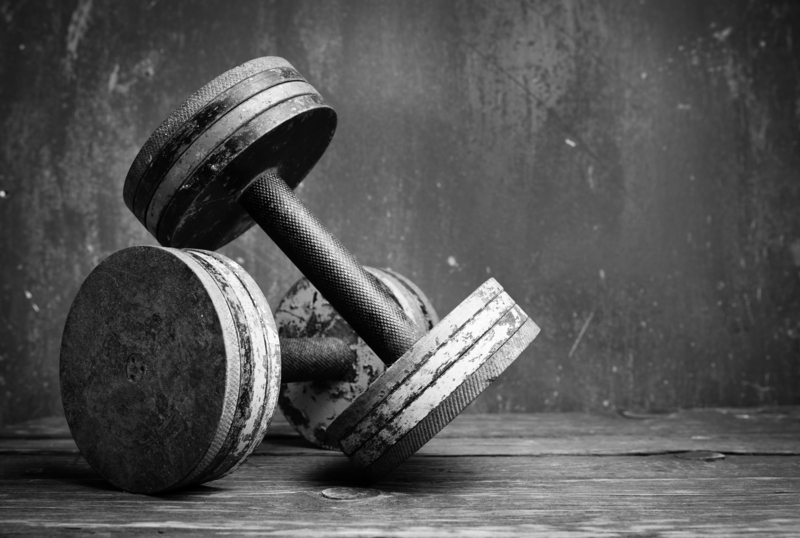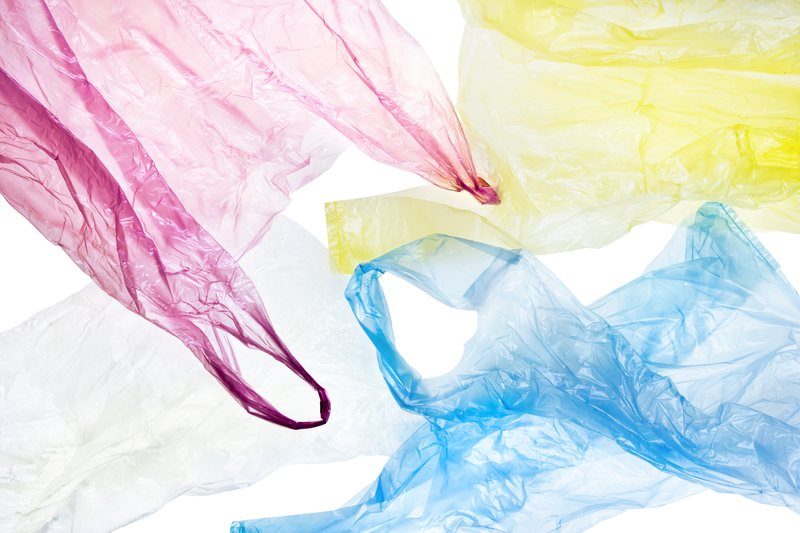Responsible Disposal Options for Old Metal Pans
Whether you are decluttering your kitchen or upgrading your cookware, you might find yourself with a stack of old metal pans gathering dust. Disposing of these pans responsibly is essential, not only to clear space at home but also to reduce your environmental footprint. In this comprehensive guide, we explore sustainable and effective disposal options for old metal pans--helping you make an eco-friendly choice while saying goodbye to your worn-out cookware.
Why Responsible Disposal of Metal Pans Matters
Metal pans are most commonly made from stainless steel, aluminum, and cast iron. These materials are durable and commonly recycled, but when discarded improperly, they can clog landfills for decades without decomposing. By considering sustainable ways to dispose of old metal pans, you actively participate in minimizing waste, conserving resources, and protecting the environment.
The Environmental Impact of Kitchenware Waste
- Landfill Overflow: Kitchen pans that end up in trash bins contribute to space and pollution problems in landfills.
- Resource Loss: Metals are valuable, recyclable materials. Throwing them away is a waste of scarce resources.
- Hazardous Coatings: Older non-stick pans may contain coatings like Teflon that can be harmful if improperly handled.

Explore Your Responsible Disposal Options for Old Metal Pans
Luckily, there are numerous eco-friendly ways to dispose of metal pots and pans. Here are some of the most practical and environmentally conscious options:
Recycling Old Metal Pans
Metal recycling is one of the best ways to manage old cookware. Most metal pans, regardless of whether they are made from aluminum, stainless steel, or cast iron, can be recycled.
- Contact Your Local Recycling Center: Not all curbside recycling programs accept cookware. Verify with your local recycling facility before placing pans in your bin.
- Prepare Your Pans: Remove any plastic handles, non-metal parts, or lids that can't be recycled. Give the pan a quick wash to remove residue.
- Special Instructions for Non-Stick Pans: Some centers don't accept pans with Teflon or ceramic coatings, since these need specialized processing. Call ahead and ask for guidance.
Recycling your cookware not only prevents waste but also reintroduces valuable metal into the manufacturing cycle, reducing the need for virgin material mining and extraction.
Upcycling and Repurposing Old Metal Cookware
If you enjoy creative projects, consider giving your old metal pans a new purpose. Upcycling helps reduce waste and allows you to showcase your creativity!
- Garden Use: Use cast iron pans as quirky planters or bird baths.
- Home Decor: Turn an old skillet into a rustic clock or wall art for a farmhouse aesthetic.
- Storage Solutions: Mount pans on the wall as unique holders for kitchen utensils, keys, or spices.
- Craft Projects: Involve children in painting or decorating unwanted pans for a fun art activity.
Remember: Upcycling is only limited by your imagination! If you're not interested, consider offering the pans to someone who loves crafts or DIY projects--they might just see the treasure hidden beneath the tarnish.
Donating Your Old Metal Pans
If your pans are still in a usable state, consider donating them. Many organizations, shelters, and thrift shops welcome kitchenware.
- Charities: Nonprofits and shelters often accept gently used cookware.
- Community Kitchens: Groups serving meals to those in need may appreciate additional kitchen supplies.
- Thrift Stores: Donation to a second-hand store can keep your pan in circulation and offer affordable options to someone else.
Always give your pans a thorough cleaning and ensure there are no sharp edges or deep damage before donating.
Scrap Metal Yards: A Valuable Resource
If your metal pans are too worn or damaged for donation or upcycling, scrap metal facilities are another excellent option for sustainable disposal.
- Find Local Scrap Yards: Search for scrap metal buyers in your area. Most will pay you a small amount for cast iron, aluminum, and stainless steel.
- Sort by Material: Some yards prefer sorted metals. Separate aluminum, iron, and steel for the best value.
- Remove Non-Metal Pieces: Again, remove handles or plastic parts for smooth processing.
Scrapping your pans ensures they are melted down and reused, reducing the demand for new metal extraction and manufacturing.
Special Considerations When Disposing of Old Non-Stick Pans
Disposing of non-stick pans requires special care. Older pans (especially those made before 2013) may contain problematic chemicals such as PFOA. Here's how to handle them:
- Recycling Restrictions: Many programs don't accept non-stick coatings. Contact your recycling center to understand their policy.
- Special Collection Events: Some cities offer hazardous waste collection days--this is an ideal time to discard older non-stick pans safely.
- Manufacturer Take-Back Programs: Leading brands sometimes offer return schemes for their own cookware. Check their websites or customer service channels.
If all else fails and your area lacks these amenities, triple wrap the pan and dispose of it in your regular household garbage. This should be a last resort!
How to Prepare Old Pans for Disposal or Recycling
Whether you're recycling, donating, or scrapping your pans, here's how to prepare them:
- Clean Thoroughly: Remove all lingering food, rust, or oil.
- Remove Non-Metal Components: Unscrew and remove plastic or wooden handles, knobs, and covers.
- Check for Damage: Look for sharp edges or cracks, especially before donating.
- Separate by Material: Aluminum, stainless steel, and cast iron should be separated for better recycling and scrap value.
- Bundle Small Parts: Collect small metal pieces (screws, rivets) in a metal can so they're not lost in processing.
Frequently Asked Questions About Old Metal Pan Disposal
Can I throw metal pans in the trash?
It's best to avoid disposing of metal pans in the trash, as they do not decompose and can contribute to landfill waste. Only use this option as a last resort when all responsible disposal methods have been exhausted.
Are all types of metal pans recyclable?
Most types can be recycled, but non-stick coatings may require special processing. Contact your local recycling center for specific details about disposing of non-stick pans or those with mixed materials.
Do charity shops accept scratched or damaged pans?
Generally, donations must be in good, safe, and usable condition. Deeply scratched, warped, or flaking pans are best recycled or scrapped instead of donated.
Can I repair broken metal pans before disposal?
In some cases, yes! Handles can be replaced, and cast iron can often be restored with cleaning and seasoning. If the repair is straightforward, you might consider fixing the pan before disposing of it--or donating it with confidence.

Creative Ideas for Repurposing Old Pans
If you're looking for fun, sustainable ideas, try transforming your old metal cookware into useful or beautiful items:
- Chalkboard Pans: Paint the inside with chalkboard paint for a kitchen message board.
- Picture Frames: Use shallow pans as quirky frames for memorable photos.
- Serving Trays: Upcycle griddles or skillets as rustic serving trays for parties and picnics.
- Lighting Fixtures: Creative crafters have fashioned pendant lights and lamp bases from old pans!
- Garden Tools: Turn metal lids or pans into plant markers or scoops for soil.
_Share your creations or find inspiration_ on social media or craft forums. You might be surprised at just how popular and rewarding these projects can be!
Final Thoughts on Sustainable Disposal of Old Metal Pans
Responsible disposal of old metal pans combines environmental stewardship, creativity, and community spirit. Whether you choose to recycle, donate, upcycle, or scrap your unwanted cookware, you help keep valuable metals out of landfills, conserve resources, and support others.
Before you toss out that scratched skillet or warped saucepan, consider one of these sustainable solutions. Not only will you do your part for the planet, but you may also find new ways to bring life, utility, or beauty to something old and unwanted.
Remember, every item you divert from the landfill is a small victory for the environment and a reflection of conscious living. Make responsible disposal of metal pans your new kitchen habit!
Key Takeaways for Metal Pan Disposal:
- Recycle whenever possible--contact your local center for guidelines.
- Repurpose creatively for a fun, eco-friendly project.
- Donate usable pans for a second life in another kitchen.
- Scrap the rest, helping metals re-enter the manufacturing process.
- Handle non-stick pans with care to avoid environmental contamination.
For more information, visit your city's waste disposal website or contact local recycling and donation centers. Let's work together for a cleaner, greener future--one pan at a time!
